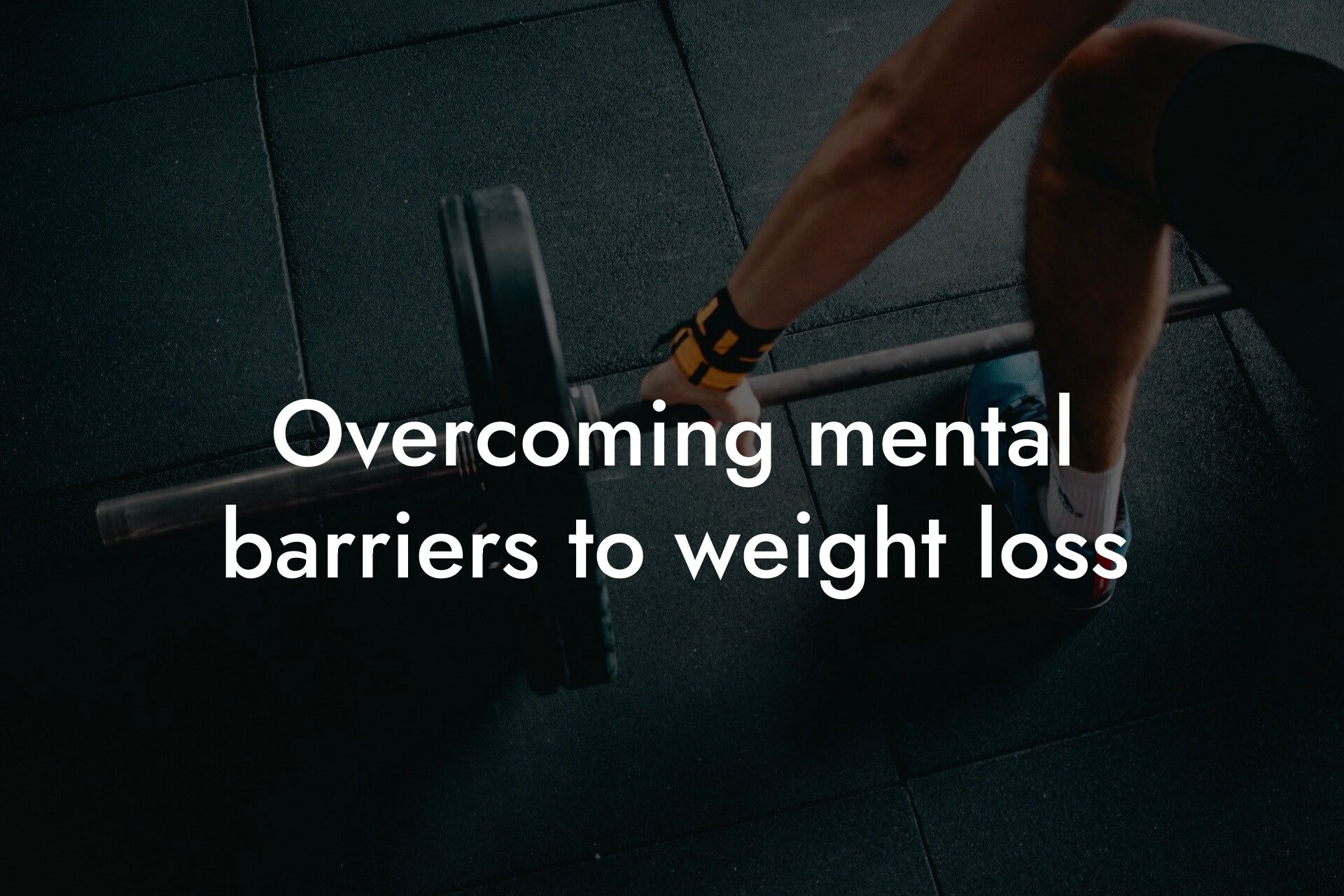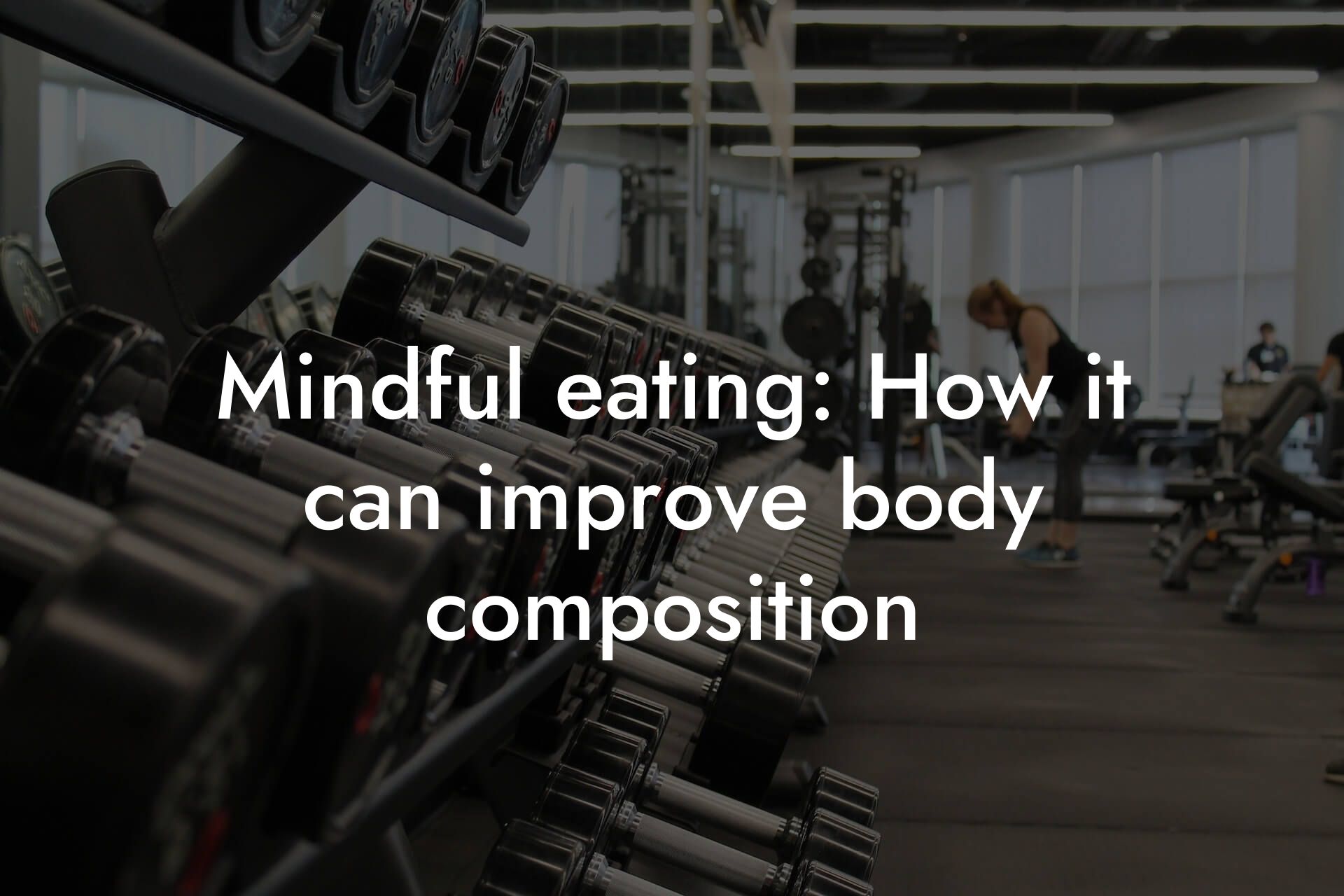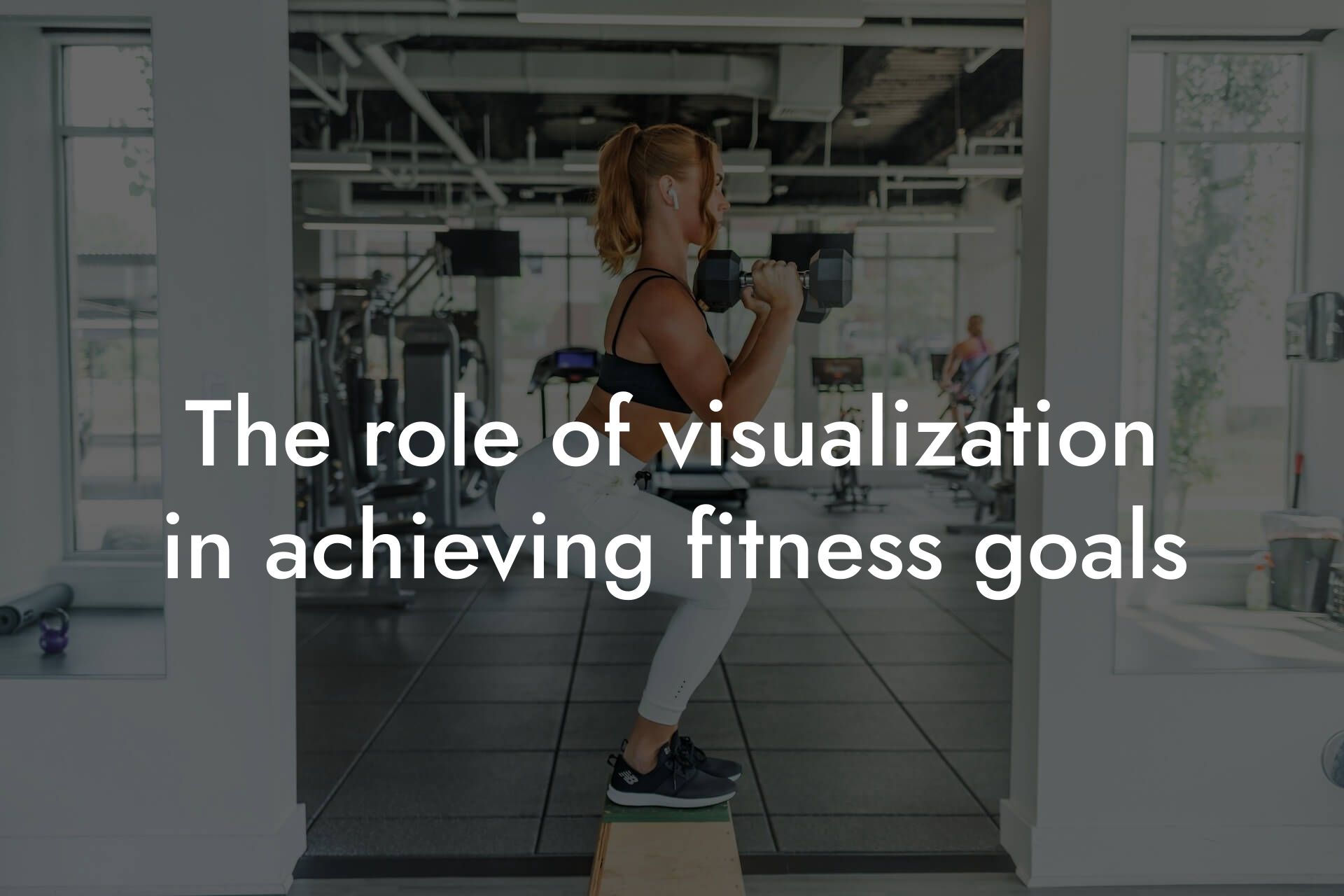As high-earning professionals, you understand the importance of maintaining a healthy physical appearance, body fat percentage, physique, and bone density. At Tano Performance Group, we believe that achieving optimal physical fitness is not just about exercise and nutrition, but also about cultivating mental resilience. In this article, we'll delve into the concept of mental resilience, its impact on physical fitness, and provide you with practical tips to improve your mental toughness.
Table of Contents
- What is Mental Resilience?
- The Connection Between Mental Resilience and Physical Fitness
- The Science Behind Mental Resilience and Physical Fitness
- Developing Mental Resilience for Physical Fitness
- Overcoming Common Barriers to Mental Resilience
- Get Started with Tano Performance Group
- Frequently Asked Questions
What is Mental Resilience?
Mental resilience refers to the ability to withstand, recover, and adapt to adversity, stress, and change. It's the capacity to bounce back from setbacks, maintain focus, and stay motivated despite obstacles. Resilient individuals possess a unique mindset that enables them to navigate challenges with confidence, optimism, and a growth mindset.
The Connection Between Mental Resilience and Physical Fitness
Research has consistently shown that mental resilience plays a significant role in physical fitness. When you're mentally resilient, you're more likely to:
Stick to your workout routine and nutrition plan, even when faced with obstacles or setbacks
Push yourself harder and longer, leading to improved performance and results
Recover faster from injuries and setbacks, reducing downtime and getting back to your routine sooner
Make healthier lifestyle choices, such as getting enough sleep, managing stress, and avoiding unhealthy habits
Develop a more positive body image, reducing the risk of disordered eating and exercise habits
The Science Behind Mental Resilience and Physical Fitness
Studies have identified several key psychological factors that contribute to mental resilience in physical fitness:
Self-efficacy: The belief in one's ability to achieve specific fitness goals
Goal-setting: Setting realistic, achievable goals that promote motivation and direction
Self-regulation: The ability to control emotions, thoughts, and behaviors in pursuit of fitness goals
Resilience: The capacity to bounce back from setbacks, injuries, and failures
Positive self-talk: The use of positive, encouraging language to promote motivation and confidence
Developing Mental Resilience for Physical Fitness
So, how can you develop mental resilience to enhance your physical fitness? Here are some practical tips:
Set realistic, achievable goals: Break down large goals into smaller, manageable objectives to maintain motivation and focus
Practice positive self-talk: Use encouraging language to promote confidence and motivation, such as "I can do this" or "I'm capable of achieving my goals"
Focus on progress, not perfection: Celebrate small victories and acknowledge progress, rather than dwelling on setbacks or imperfections
Develop a growth mindset: View challenges and setbacks as opportunities for growth and learning, rather than threats to your ego
Surround yourself with positive influences: Seek out supportive friends, family, and trainers who promote motivation and encouragement
Practice mindfulness and meditation: Regular mindfulness and meditation practice can improve focus, reduce stress, and enhance mental resilience
Overcoming Common Barriers to Mental Resilience
Despite the importance of mental resilience, many individuals face common barriers that hinder their progress:
Fear of failure: The fear of not achieving goals or failing in front of others can hold you back from taking risks and pushing yourself
Perfectionism: The pressure to achieve perfection can lead to burnout, frustration, and decreased motivation
Lack of confidence: Self-doubt and lack of confidence can make it difficult to take the first step towards fitness goals
Comparison to others: Comparing yourself to others can lead to feelings of inadequacy, jealousy, and decreased motivation
To overcome these barriers, focus on developing a growth mindset, practicing self-compassion, and celebrating small victories. Remember, mental resilience is not about being perfect; it's about being persistent and adaptable.
In conclusion, mental resilience plays a critical role in achieving optimal physical fitness. By developing mental toughness, you can overcome obstacles, stay motivated, and reach your fitness goals. At Tano Performance Group, we believe that a comprehensive approach to fitness, including mental resilience, is essential for high-earning professionals who want to take their business to the next level. By incorporating the strategies outlined in this article, you'll be better equipped to achieve your fitness goals and maintain a healthy, balanced lifestyle.
Get Started with Tano Performance Group
If you're ready to take your physical fitness to the next level, consider partnering with Tano Performance Group. Our comprehensive body assessment using a DEXA machine provides you with a detailed understanding of your body composition, bone density, and overall fitness. Our team of experts will work with you to develop a personalized fitness plan that addresses your unique needs and goals. Contact us today to schedule your appointment and start achieving the body you deserve.
Frequently Asked Questions
What is mental resilience, and how does it relate to physical fitness?
Mental resilience refers to the ability to withstand, recover, and adapt to adversity, stress, or change. In the context of physical fitness, mental resilience plays a crucial role in helping individuals push through challenges, overcome obstacles, and maintain motivation to achieve their fitness goals.
Why is mental resilience important for high-earning professionals?
High-earning professionals often lead demanding lifestyles, juggling multiple responsibilities and dealing with high levels of stress. Mental resilience helps them cope with these pressures, maintain their physical health, and perform at their best in both personal and professional spheres.
How does mental resilience impact physical performance?
Mental resilience has a direct impact on physical performance by influencing factors such as motivation, focus, and perseverance. When individuals possess high mental resilience, they're more likely to push themselves harder, overcome fatigue, and achieve their fitness goals.
What are some common challenges that high-earning professionals face in terms of physical fitness?
Common challenges include lack of time, high levels of stress, poor sleep quality, and unhealthy eating habits. These challenges can lead to decreased motivation, low energy levels, and a decline in overall physical fitness.
How can mental resilience help overcome these challenges?
Mental resilience enables individuals to reframe challenges as opportunities, develop coping strategies, and maintain a positive mindset. This helps them prioritize self-care, make healthier lifestyle choices, and stay committed to their fitness goals despite obstacles.
What are some strategies for building mental resilience in physical fitness?
Strategies include setting realistic goals, practicing mindfulness, developing a growth mindset, and building a support network. Additionally, techniques like visualization, positive self-talk, and reframing negative thoughts can also help build mental resilience.
How does goal-setting impact mental resilience in physical fitness?
Setting specific, achievable, and meaningful goals helps individuals develop a sense of purpose and direction. This, in turn, enhances mental resilience by providing a clear focus, boosting motivation, and increasing self-confidence.
What role does mindfulness play in building mental resilience?
Mindfulness practices, such as meditation and deep breathing, help individuals develop greater self-awareness, regulate their emotions, and respond to challenges more effectively. This enhances mental resilience by reducing stress, improving focus, and increasing overall well-being.
How can high-earning professionals incorporate mindfulness into their busy schedules?
Even small moments of mindfulness, such as taking a few deep breaths during a meeting or practicing a quick meditation during a lunch break, can be beneficial. Mobile apps, guided recordings, and mindfulness exercises can also help individuals incorporate mindfulness into their daily routines.
What is the connection between mental resilience and body composition?
Mental resilience plays a significant role in body composition by influencing factors such as motivation, adherence to nutrition plans, and consistency with exercise routines. When individuals possess high mental resilience, they're more likely to make healthier lifestyle choices, leading to improved body composition.
How does mental resilience impact bone density?
Mental resilience can indirectly impact bone density by influencing factors such as exercise habits, nutrition, and overall lifestyle choices. When individuals possess high mental resilience, they're more likely to prioritize bone health, engage in regular exercise, and make healthy lifestyle choices that support strong bones.
What are some common mental barriers that high-earning professionals face in terms of physical fitness?
Common mental barriers include fear of failure, perfectionism, and self-doubt. These barriers can lead to procrastination, lack of motivation, and a decline in overall physical fitness.
How can mental resilience help overcome these mental barriers?
Mental resilience enables individuals to reframe negative thoughts, develop a growth mindset, and focus on progress rather than perfection. This helps them build confidence, overcome self-doubt, and develop a more positive mindset towards physical fitness.
What role does self-compassion play in building mental resilience?
Self-compassion is essential for building mental resilience, as it allows individuals to acknowledge and accept their imperfections, rather than criticizing themselves. This helps build confidence, reduces self-doubt, and increases overall mental well-being.
How can high-earning professionals practice self-compassion in their physical fitness journey?
Practicing self-compassion involves treating oneself with kindness, understanding, and patience. This can be achieved by reframing negative self-talk, focusing on progress rather than perfection, and celebrating small victories along the way.
What are some common misconceptions about mental resilience and physical fitness?
Common misconceptions include the idea that mental resilience is innate, that it's only necessary for elite athletes, or that it's unrelated to physical fitness. However, mental resilience is a skill that can be developed, and it's essential for anyone looking to achieve their physical fitness goals.
How can high-earning professionals prioritize mental resilience in their busy lives?
Prioritizing mental resilience involves making it a conscious part of daily life, whether through mindfulness practices, goal-setting, or self-reflection. By doing so, individuals can develop greater mental resilience, leading to improved physical fitness and overall well-being.
What resources are available to high-earning professionals looking to improve their mental resilience and physical fitness?
Resources include fitness professionals, mental performance coaches, online courses, and mobile apps. Tano Performance Group also offers expert guidance, personalized coaching, and evidence-based resources to support high-earning professionals in their fitness journeys.
How can high-earning professionals measure their mental resilience?
Mental resilience can be measured through self-assessment tools, such as questionnaires and surveys. Additionally, working with a mental performance coach or fitness professional can help individuals identify areas for improvement and develop strategies to enhance their mental resilience.
What are some common signs of low mental resilience in physical fitness?
Common signs include lack of motivation, increased stress, and decreased self-confidence. Additionally, individuals may experience feelings of burnout, fatigue, or demotivation, which can negatively impact their physical fitness journey.
How can high-earning professionals overcome low mental resilience in physical fitness?
Overcoming low mental resilience involves identifying the underlying causes, developing a growth mindset, and building a support network. Additionally, strategies such as goal-setting, mindfulness, and self-compassion can help individuals build mental resilience and achieve their physical fitness goals.
What is the long-term impact of mental resilience on physical fitness?
The long-term impact of mental resilience on physical fitness is significant, leading to improved overall health, increased motivation, and a greater sense of well-being. By developing mental resilience, individuals can maintain a lifelong commitment to physical fitness, achieving their goals and living a healthier, happier life.
Here are some related articles you might love...
- Overcoming mental barriers to weight loss
- Mindful eating: How it can improve body composition
- The role of visualization in achieving fitness goals
- The impact of chronic stress on body fat
- How meditation supports physical health
- The psychology of body image among professionals
- Body positivity vs body optimization: Finding balance
- Cognitive-behavioral strategies for fitness success
- How stress management improves body composition
Zak Faulkner
Zak Faulkner is a leading authority in the realm of physical health and body composition analysis, with over 15 years of experience helping professionals optimise their fitness and well-being. As one the experts behind Tano Performance Group, Zak has dedicated his career to providing in-depth, science-backed insights that empower clients to elevate their physical performance and overall health.
With extensive knowledge of DEXA technology, Zak specializes in delivering comprehensive body assessments that offer precise data on body fat, muscle mass, bone density, and overall physique. His expertise enables individuals to make informed decisions and achieve their fitness goals with accuracy and confidence. Zak’s approach is rooted in a deep understanding of human physiology, combined with a passion for helping clients unlock their full potential through personalised strategies.
Over the years, Zak has earned a reputation for his commitment to excellence, precision, and client-focused service. His guidance is trusted by top professionals who demand the best when it comes to their health. Whether advising on fitness programs, nutritional strategies, or long-term wellness plans, Zak Faulkner’s insights are a valuable resource for anyone serious about taking their health and fitness to the next level.
At Tano Performance Group, Zak continues to lead our Content Team revolutionising how professionals approach their physical health, offering unparalleled expertise that drives real results.




